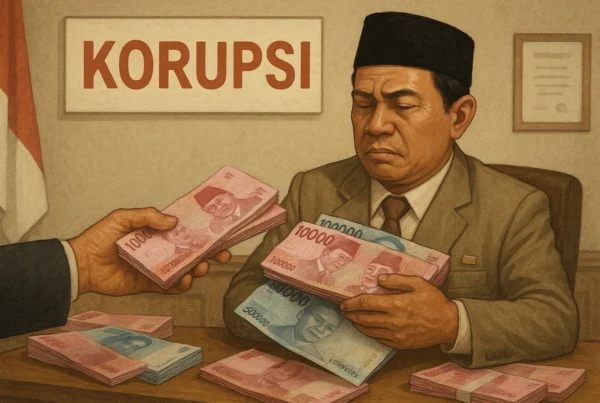Indonesia officially reshuffled its cabinet by replacing the finance minister on 8 September 2025. President Prabowo Subianto appointed Purbaya Yudhi Sadewa as the new minister, marking the end of an era for his predecessor. The decision came amid heightened political and social tension, as nationwide protests erupted over fiscal policies and growing economic inequality. The move not only captured domestic attention but also drew international scrutiny, as Indonesia’s finance minister has long been seen as a key figure in safeguarding regional economic stability.
The reshuffle unfolded against the backdrop of escalating demonstrations in multiple cities. The protests were triggered by anger over generous allowances granted to parliament members while ordinary citizens struggled with economic hardship. Clashes with security forces escalated into riots, arson attacks on public facilities, and widespread looting. One major incident even targeted the private residence of the outgoing finance minister in South Tangerang. Facing mounting pressure, the government sought to respond swiftly. By appointing a new minister, the president aimed to align fiscal direction with his administration’s flagship programs and to restore public confidence.
Officials from the presidential palace clarified that the replacement was a matter of presidential prerogative, part of a broader cabinet evaluation. Purbaya Yudhi Sadewa was considered a better fit for the government’s expansionary fiscal agenda. The administration wants to ensure major programs such as free school meals and higher defense spending proceed without bureaucratic or political obstacles. This decision also signaled a significant departure from the conservative fiscal discipline that had previously characterized Indonesia’s approach.
Public Pressure as a Driving Force
What began as frustration over lawmakers’ allowances quickly grew into a nationwide movement demanding systemic change. Citizens denounced the unequal distribution of state funds, which they argued disproportionately benefited the political elite. The protests expanded rapidly, forcing the government to confront a legitimacy crisis. Within this context, the cabinet reshuffle was seen as both a political response to ease social unrest and a symbolic gesture that the administration was listening to its people.
Analysts, however, warned that changing ministers alone would not resolve deeper grievances. Protesters are calling for meaningful reforms in fiscal policy, greater transparency in government spending, and serious efforts to reduce inequality. For many Indonesians, the reshuffle marks the beginning of change, not the end of their struggle.
A Shift in Economic Policy
The transition also represents a new direction for Indonesia’s fiscal strategy. The previous minister was known for her strict commitment to budget discipline, repeatedly resisting political pressure to increase populist spending. That approach earned praise from international institutions but drew domestic criticism for limiting growth potential.
Purbaya Yudhi Sadewa enters office with a more flexible approach. He supports pro-growth policies that involve a larger role for the state, including ambitious programs in food security, education, and defense. While markets await clarity, some economists caution that such policies could widen the fiscal deficit if not carefully managed. The immediate challenge will be maintaining investor confidence while rolling out expansive government programs.
Reactions and Long-Term Implications
The reshuffle has sparked mixed reactions. International investors responded cautiously, while institutions like the IMF and World Bank highlighted the importance of fiscal continuity. Domestic business groups voiced concern about policy stability, whereas segments of the public welcomed the move as an opportunity to move away from what they viewed as overly rigid fiscal management.
In his inaugural remarks, Purbaya pledged to uphold fiscal credibility while ensuring the president’s priority programs move forward. He promised stronger coordination across ministries and open communication with the business community. Nevertheless, formidable challenges lie ahead, from controlling inflation and managing public debt to financing new initiatives. This transition will serve as a critical test of Indonesia’s economic credibility on the global stage.
The replacement of Indonesia’s finance minister reflects a convergence of political and social pressures. Nationwide protests, the need for swift government action, and the ambition to push forward priority programs all played roles in shaping this cabinet reshuffle. The consequences will have far-reaching implications for Indonesia’s fiscal direction and for global perceptions of the country’s stability.
Readers can also explore related coverage on Olam News, including the nationwide protests and their economic impact and an in-depth look at Prabowo’s fiscal agenda.




